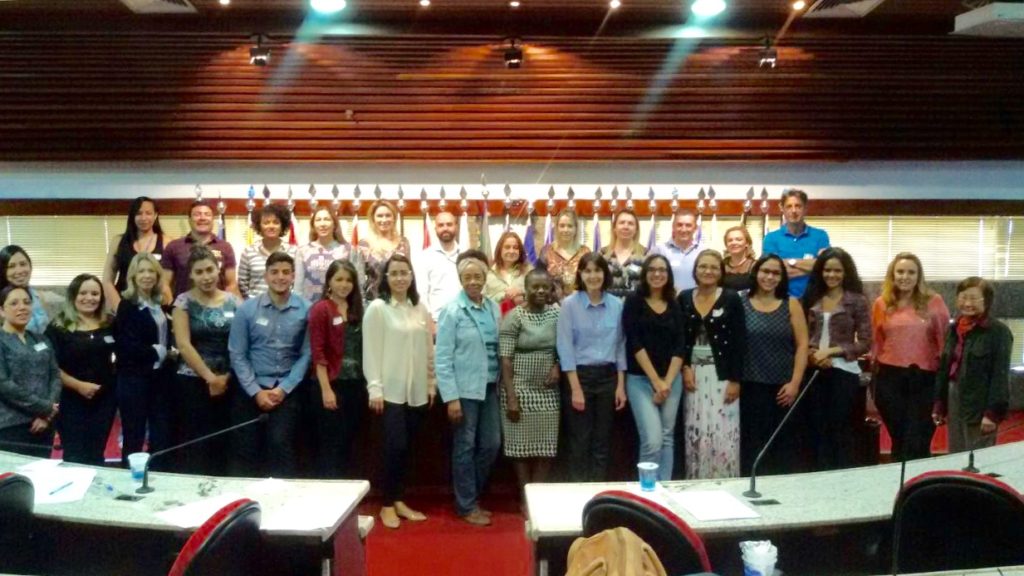The publication of research results is an integral part of the evolution of science. Researchers communicate their discoveries to the scientific community and to society, helping to build the framework of worldwide knowledge and contributing to the well-being of populations and growth of nations.
Scientific writing, a specific language of scientific and technical reports, has unique characteristics, and is intended to preserve the accuracy and veracity of the observations and to communicate the findings. Moreover, it allows a study to be repeated by other scientists, thus exerting the self-control of science.
Articles in journals are the most frequent, but not the only manner of reporting research results. Different areas of knowledge are characterized by choosing other types of documents, such as books, books chapters, technical manuals, theses, dissertations, presentations at congresses, scientific journals, newspapers and recently, social media – blogs and social networks – which have been gaining momentum and credibility among the scientific community.
Scientific writing is complex and obeys to strict rules. It is not an easy task to prepare a scientific document. Researchers, however, are significantly compensated for their efforts, since the publications and their resulting impact have become proxy of quality, credibility, and progression in one’s career.
The Fundação Nacional de Saúde (FUNASA) is a public foundation related to the National Health System/SUS – Ministry of Health, with headquarters in Brasilia/DF and 26 decentralized units, one in each Brazilian state (State Superintendent Offices). The objective of the Foundation is to promote and protect health by means of formulating, implementing, and promoting sanitation actions and solutions with the purpose of preventing and controlling illnesses. In fulfilling this function, its employees are involved in the preparation and execution of projects in public health and sanitation engineering, which is directly related to scientific research in health.
In March of this year, FUNASA professionals visited BIREME to get to know the Center’s products and services in scientific and technical information, with the intention of a potential technical cooperation among the institutions. At the time of this visit, among other topics, the training of the Foundation’s employees in scientific communication were discussed, with the objective of increasing the dissemination of FUNASA projects and their results in the form of scientific and technical articles.

On August 2nd to 4th, at the headquarters of the Foundation, in Brasilia/DF, the first of a series of courses were given, aiming to train the employees in the main concepts that govern scientific communication. Scientific writing, per se, is a topic among the various themes covered by the program, which includes numerous aspects of the editorial process, characteristics of the journals, the role of publishers and reviewers, peer review, ethical aspects, assessment of journals and impact indexes, besides introducing current tendencies and the state of the art in scientific communication, such as open data, predatory journals, preprint repositories, post-publication peer reviews, and others.
Twenty-nine employees from different sectors of FUNASA participated at the course, held by Dr. Lilian Calò, coordinator of Scientific Communication at BIREME/PAHO/WHO. The discussions and exercises at the end of each module had good participation. The hands-on workshop of composing summaries, in particular, was highly appreciated.
According to the questionnaires, the course was highly valued. The evaluations were very positive in all aspects and all the participants agreed that the content presented is relevant for their own professional development. A large part of the participants responded that the course provided them with a basis for improving writing texts and documents, as well as in the form of reading and critically evaluating scientific articles.
According to Michelle Rodrigues, Coordinator of International Technical Cooperation, “FUNASA has a specialized and experienced staff in basic sanitation and environmental health. The course taught by Dr. Lilian Calò has contributed to the improvement of the technicians of this Foundation. We are looking forward to being able to participate at other editions of the courses offered by BIREME”.